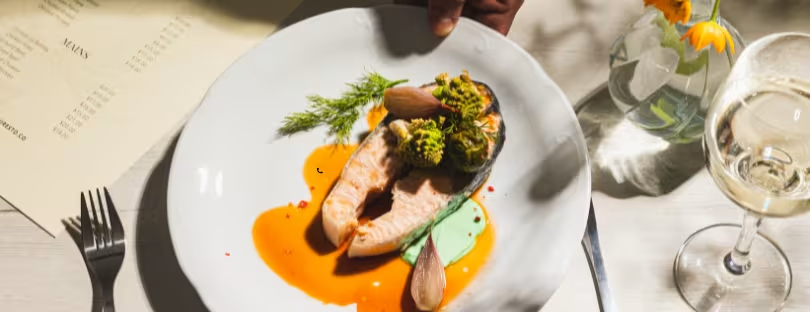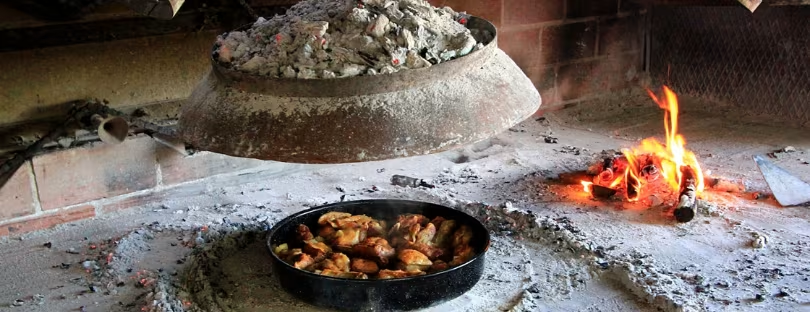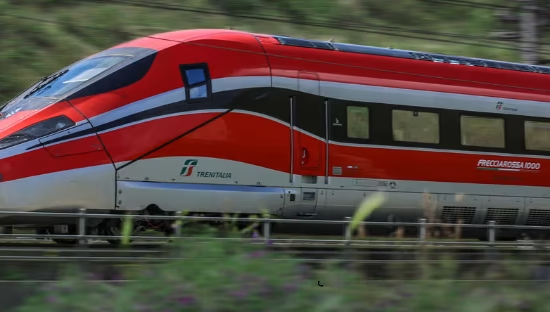
Central Dalmatia’s Journey to Gastronomic Recognition
An international jury of five esteemed experts, each representing diverse sectors such as education, biodiversity, culture, tourism, and the primary sector, joined by IGCAT President Dr. Diane Dodd, convened to assess Central Dalmatia’s bid for the title of European Region of Gastronomy 2027. Following the submission of the draft bid book on 1 December 2024, the jury conducted an on-site evaluation from 19–23 May 2025 to explore the region’s readiness and strategic vision. Their mission: to determine whether Central Dalmatia is prepared to host this prestigious title and continue shaping Europe’s culinary future. Central Dalmatia gastronomy
During the visit, the jury spoke with over 75 stakeholders from across the region, including tourism directors, local authorities, cultural heritage experts, academics, chefs, sommeliers, business leaders, educators, and representatives from civil society organizations dedicated to the preservation and development of Dalmatia’s cultural identity. The jury was impressed by the breadth of participation from public, private, academic, and third-sector institutions and commended the collaborative efforts and strategic vision demonstrated throughout the bid process.
The jury was welcomed at the Split-Dalmatia County headquarters for insightful meetings with representatives from the Department of Tourism, Maritime Affairs and Transport, the Department for Education, the Department for Culture, Sports and Technical Culture, the Croatian Chamber of Economy, the ACMER and the Culinary Academy as well as the University of Split.
Central Dalmatia’s intersectoral strategy was presented, focusing on circular food systems, local product certification, vocational education, and inclusive access to gastronomy rooted in heritage. jury praised the region’s strong commitment to innovation, creativity, and sustainability in gastronomy, particularly its strategies for creating long-term employment in the tourism and food sectors. The County’s support and investment in forward-thinking projects are to be highly commended, including:
- Agripolis – a wholesale market concept connecting smallholder farmers and restaurants to secure income for local producers and encourage youth participation in food production.
- Scan-it App – offering nutritional insights to inspire a stronger connection to the Mediterranean diet.
- Inclusive Dalmatia – a campaign to share the region’s hidden stories through food culture.
While tourism remains a major economic pillar, and the Split-Dalmatia County Tourism Board do an excellent job in raising international awareness through tourism fairs, media outreach, and hosting global influencers so that the region has steadily built its reputation as a culinary destination. The jury also observed the Tourism Board’s deep support and appreciation for food production and heritage preservation, knowing this is the basis.
Central Dalmatia gastronomy
From a tourism perspective, Central Dalmatia’s blend of high-quality hospitality and sustainable models stood out. Locals expressed a deep pride in their culinary identity and a desire to pass on authentic traditions to future generations. The region offers inclusive, immersive experiences beyond fine dining, ranging from the Olive Oil Museum in Škrip to local markets in Split and fish-related tourism in Postira.
A special mention was given to the Dalmatian Marenda, an iconic food tradition, more than just a meal; it symbolises unity, tradition, and the enjoyment of local cuisine. The Marenda is an experience that reflects a very embedded cultural lifestyle: it implies a moment of pause and socialising, an opportunity to connect with friends and family, share stories, and enjoy life calmly. This tradition reflects and promotes key Dalmatian values: hospitality, community, and a deep appreciation for the flavours from the local producers.
Another example of Central Dalmatia’s rich culinary heritage is the Peka, a traditional cooking technique where meat such as lamb, chicken or fish, together with vegetables, are placed under a metal dome covered with embers, allowing slow, even cooking that preserves the juices and flavours of the ingredients.
The jury also highlighted successful examples of food events such as the Days of Dalmatian Prosciutto & Wine in Vrgorac, which showcase the region’s specialties to local and international audiences and the importance of municipalities throughout the county to promote their food uniqueness. Central Dalmatia gastronomy
From the private sector, Ethno Agro Park Stella Croatica was identified as a European best practice in agro-food heritage interpretation. Stella Croatica and Herba Croatica, two family-run enterprises blending tradition with innovation, truly impressed the jury. Through public-private cooperation, they have transformed local delicacies and natural resources into immersive visitor experiences, welcoming over 57,000 guests last year. From handmade fig cakes to olive oil and natural supplements, their commitment to quality, education, and sustainability is truly exemplary.
Bota Family Farm project is another private initiative that stands out, where regenerative agriculture and biodiversity intersect with social entrepreneurship. A living laboratory of permaculture and Mediterranean macrobiotic practices, these working practices need to be extended across the whole region.
The Olive Oil Museum and gastro-experience in Brač was also a fine example of the sort of small-scale, intimate visitor experiences that Central Dalmatia needs to continue to foster. The Jury learned about the island’s long-standing olive cultivation, with over one million olive trees and international recognition for their product. The museum has been revived by descendants to showcase traditional production tools and techniques. A 112-year-old press and a small-scale demonstration provided insight into the labour-intensive process that once yielded 50–55 litres of oil. With a guided tasting, the Jury identified high-quality extra virgin olive oil, whilst experiencing other regional treasures. Central Dalmatia gastronomy.
The academic sector is very strong, with the jury visiting three important education and training organizations and institutions. They all have conditions to be pivotal stakeholders in this area – promoting local gastronomy and high-quality service under the concept of sustainability –, each assuming the leading roles in specific activities, not forgetting the interchangeable work they must do together under the leadership of the Tourist Board of Split-Dalmatia County:
- Split Tourism and Hospitality School and Regional Competence Centre with new and sophisticated facilities, with its vocational training courses in the field of gastronomy, restaurant service, hotel management and tourism, with almost 700 students, is a key player for the project for attracting youngsters to this area of studies and providing the hospitality sector with the best talent.
- The jury also had the opportunity to meet with representatives from equally interesting and positive learning facilities including the Hospitality and Tourism School in Bol (Brac Island), and the Agricultural School in Kaštela.
- The University of Split – Kampus – with its research and development capacity, its food engineering and nutrition programs, its food services for the entire scholar community, has an important role on studying, applying and disseminating the knowledge about good practices in all that concerns the food chain. This centre serves 5,000 locally sourced meals daily at low cost and is an incredible sustainable student nutrition initiative.
- ACMER/ŠKMER (Association of Chefs from Mediterranean and European Regions) Culinary Academy, with an innovative approach in training professionals (chefs, sous chefs, cooks, trainers) and non-professionals (children, youngsters and adults). We want to highlight the training the trainers’ programs (trainers that teach young students in vocational courses and will multiply this knowledge), and the children and adults’ workshops. In the case of adults, manly tourists come from all over the world to learn about this region’s culinary secrets in modern facilities.
All the above, indicate to the jury that the candidacy and consortium for Dalmatia European Region of Gastronomy is very attentive to the central importance of educating all citizens about food production and consumption, making them aware that it’s not only food… it’s culture, economy, health, quality of life and even the future of humanity.
Projects like Pharos on the Plate by Ivana Ozanić, and the forthcoming Dalmatian Marenda cookbook, as well as the Marenda module for education, further showcase the region’s academic depth and cultural richness.
Central Dalmatia is blessed to be rich in biodiversity. Wineyards across the County not only contribute to Croatia’s 120 varieties of grapevines, they have been instrumental in preserving and promoting unique varieties such as Plavac Mali, Crljenak Kaštelanski, Pošip and Grk, Vugava, Debit and Maraština. The standard and quality of the wine is excellent, and the jury consists of professionals dedicated to recovering wine varieties.
The region also hosts many local olive tree varieties and as a consequence award award-winning olive oils. The region hosts a wide tradition of local fresh fish from the sea and rivers (the jury enjoyed learning about the quality and sustainable food production from Sardina fish processing factory).
The jury was heartened to meet young cheese producers and learn about the many types of cheese and noted that young people are being attracted into food production.
With abundant products, including aromatic herbs, and many products from the land, in particular mutton and lamb Central Dalmatia is a food heaven. In fact, the region’s name comes from the sheep indicating its closeness to nature and food biodiversity.
What impressed the jury was the clear commitment to artisanal practices in the region. Olive oils from the island of Bračand Šolta, cheeses from Brač, the Dalmatian pršut cured solely with sea salt and natural smoking, the local salt from Ston etc., are produced using artisanal methods, often on small family farms, ambassadors of ancestral knowledge. An authenticity kept alive and not folklorised.
The collaboration, enthusiasm, and passion of the various stakeholders shaping the gastronomic and agri-food heritage of the region was strongly evident and the jury expressed gratitude for the outstanding hospitality and generous participation of regional businesses and institutions, including: Hotel Park, Zora Bila, Pinku, Corto Maltese, Pandora Greenbox, ACMER/ŠKMER Academy, Vila Dvor, Stella Croatica, Kaštil Slanica, Tavern Bajso, Kod barba Ede, Dario Gašpar Winery, Dujkin Dvor, Hotel Ambassador, Vrgorac Tourist Board, the Dalmatian Wines Association, Olive Oil Museum (Škrip), Stina Winery, Taverna Riva, Cornaro Hotel Terrace and Poetica Destillery.
The jury acknowledged the unified effort across sectors to position Central Dalmatia as a gastronomic destination. Central Dalmatia shows how gastronomy can be a powerful engine for sustainable tourism, innovation, and job creation. The region’s integrated approach – connecting education, creativity, hospitality, cultural heritage, and sustainability – makes a compelling case for European recognition.
The jury concluded that the European Region of Gastronomy Award would further facilitate knowledge sharing and raise international visibility, contributing to Central Dalmatia’s growing reputation as a hidden culinary gem. And they highlighted that continued and increased collaboration across multiple sectors is essential to continue and strengthen this positive trajectory, especially in the context of the candidature of the European Region of Gastronomy in 2027. Building synergies between public institutions, local producers, chefs, tourism, education, and non-governmental organisations forms, will guarantee the success of numerous initiatives that reinforce the region’s gastronomic identity and encourage sustainable tourism development.
The jury appreciated that the bid:
- integrates the six different focus areas of IGCAT;
- has had a genuine development with multiple stakeholders participating;
- Includes plans for Dalmatia’s participation in IGCAT joint projects that show a commitment to the European dimension;
- presents a long-term lasting legacy for the region;
- shows a strong commitment from the regional partners to sustainability and quality food products;
The jury agreed that the exceptional food and hospitality found in Central Dalmatia, the commitment to young people, jobs and training, make Central Dalmatia’s application extremely strong. Therefore, based on the written application and visit to the region, the jury decided that Central Dalmatia should be recommended for the title European Region of Gastronomy 2027, pending the delivery of the final bid book.
The jury emphasized that the final bid book, as a contractual agreement with IGCAT, must be updated post-election. It should include a clear governance model, action plan, and budget, and be submitted by 10 June 2025 to be approved at the IGCAT Advisory Forum on 18 June 2025.
The jury will submit in the coming days their recommendations to the region. The jury has every confidence in the region, congratulates Split-Dalmatia Tourism Board for their initiative, and very much hopes to see preparations unfold for the region’s Award Ceremony, which will be an opportunity to share Central Dalmatia’s food treasures with the world.
Jury composition
Dr. Diane Dodd, IGCAT President, accompanied the independent jury to look at the European dimension and intentional perspectives. The independent jury members were:
- Ramon Sentmartí, IGCAT Board and Catalonia World Region of Gastronomy 2025 focused his attention on governance, finance and long-term viability.
- Emanuela Panke, President of Itervitis Cultural Route of the Council of Europe and IGCAT Expert, focused her attention on job opportunities, tourism and entrepreneurship.
- Wendy Barrie, IGCAT expert and Scottish Food Guide focused her attention on biodiversity and environment.
- José Luís Marques, from Coimbra, European Region of Gastronomy 2021 and IGCAT Expert on Culture and Education who focused his attention on culture, citizen engagement, empowerment and educational initiatives;
- Jens Storli, from Trondheim-Trøndelag, European Region of Gastronomy 2022 and IGCAT expert on Local Strategy Development and Communication, focused his attention on visibility, communication, marketing, legacy and evaluation.












